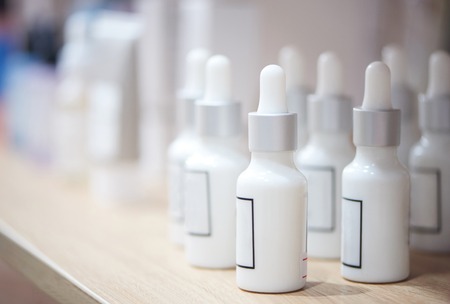1. Understanding Collagen and Its Benefits
Collagen is the most abundant protein in your body, making up about 30% of your total protein content. Its a key building block that helps maintain the structure and strength of your skin, joints, bones, and connective tissues. Think of it as the “glue” that holds everything together.
What Exactly Is Collagen?
Collagen is made up of amino acids, primarily glycine, proline, and hydroxyproline. Your body naturally produces collagen, but as you age—especially after your mid-20s—this production starts to slow down. That’s when signs of aging like wrinkles, joint stiffness, and weaker hair or nails can start to appear.
Why Collagen Matters for Your Health
Collagen plays a crucial role in keeping your body functioning smoothly. Here’s how it supports different areas:
| Body Part | How Collagen Helps |
|---|---|
| Skin | Improves elasticity, hydration, and reduces fine lines and wrinkles. |
| Joints | Cushions joints and may help relieve discomfort or stiffness. |
| Bones | Supports bone density and overall strength. |
| Hair & Nails | Promotes stronger, faster-growing hair and nails. |
| Gut Health | May help repair the gut lining and improve digestion. |
Types of Collagen You Should Know About
There are over 20 types of collagen, but five are most commonly found in supplements:
| Type | Main Function | Where Its Found in the Body |
|---|---|---|
| Type I | Supports skin, bones, tendons, and ligaments. | Skin, bones, tendons |
| Type II | Cushions joints and supports cartilage health. | Cartilage |
| Type III | Aids in skin elasticity and organ support. | Skin, organs, blood vessels |
| Type V | Aids in eye health and hair structure. | Hair, eyes, placenta tissue |
| Type X | Plays a role in bone formation and healing. | Bones and cartilage during development or healing processes |
The Bottom Line on Collagens Role in Wellness
If youre looking to improve your skins appearance, boost joint comfort, or support healthy aging from the inside out, collagen supplements could be worth considering. In the next section, we’ll go over how to choose the right type based on your personal goals and lifestyle needs.
2. Types of Collagen and Their Functions
When youre shopping for the best collagen supplement, its important to understand that not all collagen is created equal. There are several types of collagen found in the body, but the most common ones used in supplements are Type I, II, and III. Each type plays a unique role in supporting different parts of your body—like your skin, joints, or bones.
What Are the Main Types of Collagen?
Collagen is a protein that gives structure and strength to various tissues. The human body produces over 20 types of collagen, but here are the top three you’ll see in supplements:
| Collagen Type | Main Benefits | Where Its Found | Best For |
|---|---|---|---|
| Type I | Supports skin elasticity, strengthens bones and tendons | Skin, bones, tendons, ligaments | Aging skin, bone health |
| Type II | Cushions joints and supports cartilage health | Cartilage (especially in joints) | Joint support, arthritis relief |
| Type III | Improves skin firmness and gut lining support | Skin, blood vessels, internal organs | Younger-looking skin, digestive health |
Which Type Should You Choose?
The right type of collagen for you depends on your personal goals:
- If youre focused on anti-aging or improving skin texture: Look for supplements with Type I and III.
- If joint health is your main concern: Go for a supplement with Type II collagen.
- If you want full-body benefits: Some products combine multiple types (often labeled as “multi-collagen”) to support skin, joints, hair, nails, and more.
Sourcing Matters Too
Collagen can be sourced from different animals—typically bovine (cow), marine (fish), chicken, or even eggshell membrane. Heres how they compare:
| Source | Main Collagen Types | Best For |
|---|---|---|
| Bovine (Cow) | I & III | Skin, hair, nails, bones |
| Marine (Fish) | I | Younger-looking skin; highly absorbable |
| Chicken Sternum/Cartilage | II | Joint health and cartilage repair |
| Eggshell Membrane | I, V & X | Tendons, ligaments, joint flexibility |
The Bottom Line on Collagen Types (Without the Final Thoughts)
No matter what your wellness goals are—whether its glowing skin or stronger joints—knowing which type of collagen matches your needs helps you make smarter choices when picking a supplement. Stay tuned as we explore other key factors like dosage forms and ingredients in the next sections!

3. Key Factors to Consider When Choosing a Collagen Supplement
When it comes to picking the best collagen supplement, not all products are created equal. There are several key factors you should consider to make sure youre getting the most benefits for your health and beauty goals. From the type of collagen source to extra ingredients that help with absorption, heres what you need to know.
Collagen Source
Collagen can come from different sources, and each has its own benefits. Here’s a quick breakdown:
| Source | Description | Best For |
|---|---|---|
| Bovine (Cow) | Sourced from cow hides or bones. Rich in Type I and III collagen. | Skin elasticity, hair growth, muscle repair |
| Marine (Fish) | Sourced from fish skin or scales. High in Type I collagen. Easier to absorb. | Younger-looking skin, anti-aging, fast absorption |
| Chicken | Mainly Type II collagen from chicken cartilage. | Joint support, cartilage repair |
Hydrolyzed vs. Non-Hydrolyzed Collagen
The way collagen is processed matters too. Hydrolyzed collagen—also called collagen peptides—has been broken down into smaller pieces so your body can absorb it more easily. If youre looking for something that mixes well into drinks and is easy on digestion, hydrolyzed collagen is often the better choice.
| Type | Description | User Benefits |
|---|---|---|
| Hydrolyzed Collagen (Peptides) | Easier to digest and absorb; dissolves in hot or cold liquids. | Smoother skin, stronger nails, improved gut health |
| Non-Hydrolyzed Collagen (Gelatin or Whole Collagen) | Larger molecules; may be harder to digest; usually used in cooking. | Baking and cooking use; less efficient for supplements |
Add-On Ingredients That Boost Effectiveness
A good collagen supplement often includes other nutrients that help your body make the most of it. Look for these on the label:
- Vitamin C: Essential for collagen synthesis in the body. Helps build and maintain new collagen.
- Hyaluronic Acid: Helps retain moisture in skin and joints, boosting hydration and elasticity.
- Zinc: Supports skin repair and immune health.
- Amino Acids: Help rebuild proteins like collagen more efficiently.
A Quick Look at Helpful Add-Ons:
| Nutrient | Main Benefit | Why It Matters in Collagen Supplements |
|---|---|---|
| Vitamin C | Aids natural collagen production | Your body can’t produce new collagen without it |
| Hyaluronic Acid | Keeps skin hydrated and plump | Adds glow and reduces dryness-related wrinkles |
| Zinc | Powers up tissue repair & immunity | Keeps skin strong and acne-free while supporting healing processes |
| Amino Acids (like Glycine & Proline) | Main building blocks of collagen fibers | Makes your supplement more effective at rebuilding tissue |
Selecting the right collagen supplement depends on your personal wellness goals—whether its glowing skin, stronger joints, or overall vitality. By paying attention to these key factors, youll be much more likely to find a product that works best for you.
4. Top Collagen Supplement Forms: Powder, Capsules, and More
When choosing the best collagen supplement for your needs, its important to consider not just the type of collagen or its source, but also the form it comes in. Different forms can affect how easy it is to take, how quickly its absorbed, and whether it fits into your daily routine. Let’s break down the most popular collagen supplement forms and compare their pros and cons to help you find what works best for you.
Powder
Collagen powder is one of the most popular options on the market. It usually comes in a tub or single-serve packets and can be mixed into drinks like coffee, smoothies, or even soup.
Pros:
- Highly customizable dosage
- Easily mixes into hot or cold beverages
- Often unflavored or lightly flavored for versatility
Cons:
- Requires preparation—can be inconvenient on-the-go
- May clump if not mixed properly
Capsules
Capsules are ideal for people who prefer a no-fuss approach. Just pop a pill and youre done—no mixing required.
Pros:
- Convenient and portable
- No taste or texture issues
- Pre-measured dosage makes it easy to track intake
Cons:
- You may need to take several capsules daily to meet recommended dose
- Takes longer to digest compared to powder
Liquid Collagen
Liquid collagen is pre-dissolved and often comes in ready-to-drink bottles or ampoules. Its growing in popularity thanks to its convenience and fast absorption.
Pros:
- Fast absorption rate
- Easy to consume without additional prep
- Often includes added vitamins like biotin or vitamin C
Cons:
- More expensive than other forms
- Shelf life may be shorter once opened
- Taste may not appeal to everyone
Gummies
If you’re someone who struggles with swallowing pills or dislikes powders, collagen gummies could be a fun and tasty alternative.
Pros:
- Tasty and easy to take
- No water or prep required
- Kid-friendly option for adults who prefer chewables
Cons:
- Lower collagen content per serving compared to powders or liquids
- May contain added sugars or artificial flavors
Nutritional Comparison Table:
| Form | Main Benefit | Main Drawback | User Lifestyle Fit |
|---|---|---|---|
| Powder | Customizable dosage; versatile use in food & drinks | Needs preparation; not as travel-friendly | Great for those who prepare meals at home regularly |
| Capsules | No taste; convenient for daily routine | Might require multiple pills per dose | Iideal for busy individuals or travelers |
| Liquid Collagen | Quick absorption; often includes extra nutrients | Tends to be more expensive | Suits those seeking maximum efficiency & results |
| Gummies | Tasty & easy to consume | Might have lower collagen content & added sugars | A good choice for beginners or those who dislike pills |
The right collagen supplement form ultimately depends on your lifestyle, preferences, and health goals. Whether youre always on-the-go, love making smoothies at home, or simply want something quick and tasty, theres a format that will work for you.
5. How to Maximize the Benefits of Collagen Supplements
If youre investing in collagen supplements, youll want to get the most out of them. Here’s how to boost their effectiveness with smart timing, proper combinations, and healthy habits that support your body’s natural collagen production.
When and How to Take Collagen
Consistency is key when it comes to collagen supplements. While theres no one-size-fits-all time to take them, many experts recommend taking collagen on an empty stomach or alongside a source of vitamin C for better absorption. Morning or post-workout are popular times because your body is in repair mode and ready to absorb nutrients.
Timing Tips
| Time of Day | Why It Works |
|---|---|
| Morning (empty stomach) | May improve absorption and digestion |
| Post-workout | Aids in recovery and supports joint health |
| Before bed | Your body repairs tissues while you sleep |
Pairing Collagen With Other Nutrients
Certain vitamins and nutrients help your body make better use of collagen. Pairing your supplement with these can significantly enhance its effects:
Nutrients That Boost Absorption
| Nutrient | How It Helps | Food Sources |
|---|---|---|
| Vitamin C | Catalyzes collagen synthesis in the body | Citrus fruits, bell peppers, strawberries |
| Zinc | Aids in tissue growth and repair | Pumpkin seeds, beef, chickpeas |
| Copper | Supports cross-linking of collagen fibers | Nuts, shellfish, whole grains |
| Amino Acids (glycine, proline) | Main building blocks of collagen peptides | Bone broth, eggs, meat |
Lifestyle Habits That Support Collagen Production
Your daily habits play a huge role in how well your body maintains and produces collagen naturally. Here are some simple lifestyle tips that can make a big difference:
- Avoid Excess Sugar: Too much sugar can damage existing collagen through a process called glycation.
- No Smoking: Smoking reduces blood flow to the skin and damages collagen and elastin fibers.
- Sunscreen Daily: UV rays break down collagen—always use SPF 30 or higher.
- Prioritize Sleep: Deep sleep is when your body does the most tissue repair and regeneration.
- Eats Foods Rich in Antioxidants: Berries, leafy greens, and green tea help protect collagen from oxidative stress.
- Stay Hydrated: Water helps keep your skin plump and supports overall cellular function.
- Add Strength Training: Resistance exercises may stimulate growth hormone production, which helps with collagen synthesis.
The best way to benefit from collagen supplements is by supporting them with a healthy lifestyle and smart nutritional choices. When you combine good timing with the right pairings and habits, you’ll likely see faster and more noticeable results—from smoother skin to stronger joints.

